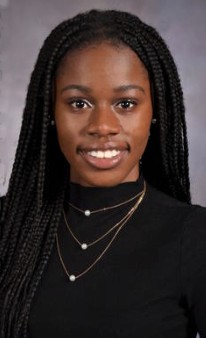New York, NY (January 5, 2023) – The Leitner Center for International Law and Justice congratulates our colleague and Distinguished Scholar-in-Residence, Professor Gay McDougall, as recipient of the first Nelson Mandela Award given by the International Human Rights Section of the Association of American Law Schools (AALS) . The award is presented in recognition of her work as an outstanding law teacher and scholar who has “made an exceptional contribution to International Human Rights.” As always, we are immensely proud to work with Professor McDougall.
Professor McDougall will accept the award at the Annual Meeting of the American Association of Law Schools in San Diego, South California on, January 7. For those unable to attend in person, a zoom invite has been arranged, as follows:
Date: Saturday, January 7
Time: 12 p.m. PT/ 9 a.m. ET
Link:
https://us06web.zoom.us/j/85294739514?pwd=cGJJcTc2cGxENjg1TCswZmh2TjRDdz09
Password:
BAVender*5010
Below is the text of her commendation profile, provided courtesy of the International Human Rights Section of the American Association of Law Schools (AALS):
Few embody the values and spirit of Nelson Mandela as does Professor McDougall. After graduating from high school, she was the first African American student to integrate Agnes Scott College in Decatur, Georgia. After obtaining her J.D. and LL.M. and gaining legal experience, she worked on eliminating the apartheid system in South Africa. A South African publication explained what she did:
“Prof McDougall was perhaps most noted for her role in loosening the grip of apartheid. She led the Southern African Project for the Lawyers Committee for Civil Rights, where her tireless efforts challenged those who wanted to keep apartheid intact. Following the country’s liberation in 1994, Prof McDougall spent considerable time inside South Africa, helping to dismantle apartheid laws and assisted in overseeing the first democratic election in 1994. [She was one of five international members of South Africa’s Independent Electoral Commission, which successfully organized and administered that country’s first non-racial elections, which saw the election of Nelson Mandela.] She assisted thousands of political prisoners in South Africa and Namibia. In recognition of her tireless opposition to apartheid, Prof McDougall was invited to stand next to Nelson Mandela as he cast his ballot in the historical election that made him South Africa’s first democratically elected President.”
As Special Rapporteur to the UN Subcommission on the Prevention of Discrimination and Protection of Minorities, Professor McDougall presented a groundbreaking study on the issue of systematic rape and sexual slavery practices in armed conflict, calling for international legal standards for the prosecution of such acts.
She was the first person that the UN Human Rights Commission (now the UN Human Rights Council) appointed to the position of Independent Expert on Minority Issues. She was the first American to serve as a member of the UN Committee on the Elimination of Racial Discrimination and was reappointed last year by Secretary of State Antony Blinken as a member of that highly respected Committee. The Committee monitors member state compliance with the International Convention on the Elimination of All Forms of Racial Discrimination. (Deciding to appoint no one to this important human rights body, the Trump administration had refused to reappoint her to that position.)
Professor McDougall also established a non-state organization, the Commission on Independence for Namibia, made up of 31 distinguished policymakers, to thwart then-apartheid South Africa’s aggressive aims towards that country. She played a leadership role in the UN Third World Conference against Racism, held in Durban in 2001. In addition to her work with the United Nations, she served for over a decade as the executive director of Global Rights, an NGO, which collaborated with human rights advocates in ten countries around the world to develop their strategies for justice.
Professor McDougall graduated from Yale Law School and has an LL.M. from the London School of Economics in Public International Law. She also worked as an associate at Debevoise, Plimpton, Lyons & Gates for two years before joining the National Conference of Black Lawyers as general counsel and later pursuing other public interest law positions.
Since 2018, she has been a Distinguished Scholar in Residence at Fordham Law School. She had previously taught at Georgetown Law School as the Father Robert F. Drinan Visiting Professor in Human Rights, again at Fordham as the Mulligan Distinguished Visiting Professor of International Law, and at the Washington College of Law as a Distinguished Scholar in Residence. Her book, The First United Nations Mandate on Minority Issues, published by Brill, covers her work as the first UN Independent Expert on these issues.
In 1999, Professor McDougall was awarded a MacArthur Foundation Genius Fellowship for her work on behalf of international human rights; in 2011, she received the Butcher Medal from the American Society of International Law for her lifetime advocacy for civil and human rights; and in 2015, the Government of South Africa gave her the Order of O.R. Tambo Medal, their national medal of honor for non-citizens, for her contributions to ending apartheid.
We are honored to present the Nelson Mandela Award to Gay McDougall.





